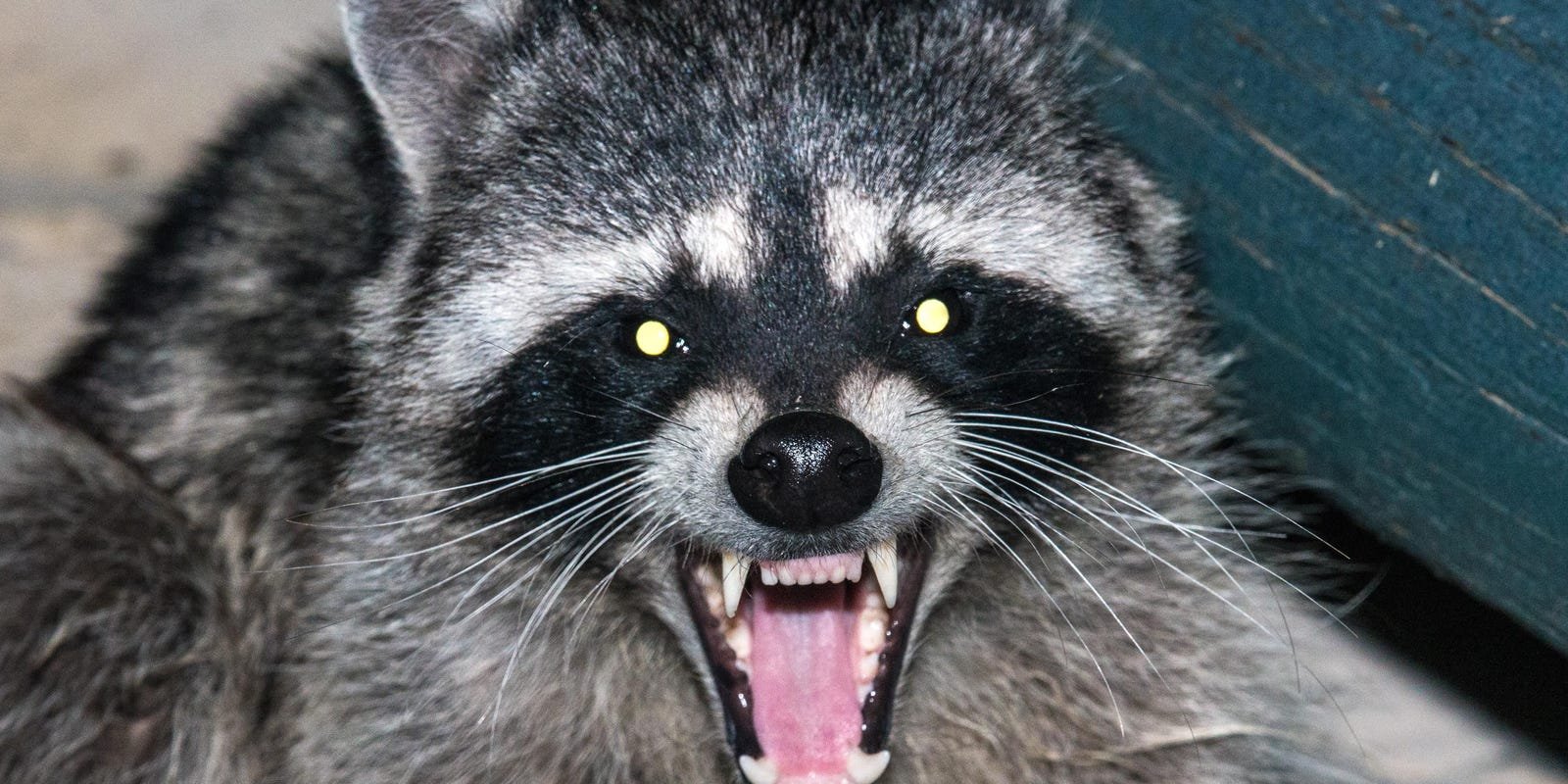Can Raccoons Spread Disease To Humans?

Raccoons look cute and cuddly, but they are still aggressive animals that can transmit diseases through scratches, bites, and indirect contact. The risk of contracting the diseases that raccoons carry increases as they become accustomed to living in the suburbs. The number of infectious diseases carried by raccoons has increased, and they can now be transmitted to humans much more easily. If a raccoon is in or around a home, adults and children are at risk of contracting these diseases through direct contact with the animal or its urine/feces.
The most common diseases carried by raccoons include Rabies, Salmonella, Leptospirosis, and Baylisascaris procyonis. These diseases can greatly affect human health and contact with any raccoon should be avoided. If bitten by a raccoon, contact a health care official right away.
Learn More: Frequently Asked Raccoon Removal Questions
How Can Raccoons Spread Rabies To Humans?
Rabies (Lyssavirus) is a viral infection that affects mammals’ central nervous systems. It is transmitted through the animal’s saliva a few days before death when the virus is “shed.” Rabies cannot be transmitted through an infected animal’s blood, urine, or feces, nor can they be spread through the air. Most rabid animals act abnormally because it affects the nervous system.
Raccoons spread rabies to humans through bites. This is why it’s advised to contact wildlife removal experts for help with removing raccoons from home. If a raccoon has bitten you, contact an animal removal technician to trap the raccoon and test it for rabies.
How Is Salmonella Spread From Raccoons To People?
When raccoons are discovered living in an attic or outbuilding and then removed from the property, feces left behind is the common way salmonella is spread from raccoons to humans. This bacteria is commonly found in raccoon feces, and when people clean up the raccoons’ droppings, the salmonella bacteria can be transmitted. Because the bacteria is durable and resilient, it can survive for a long time in the feces, meaning it can be transmitted even if the droppings aren’t fresh.
While salmonella does not pose a life-threatening threat, it can cause serious health problems such as fever, severe diarrhea, and abdominal pain. There is a small concentration of people who die of salmonella in the United States every year. If a raccoon has spent time inside your home, an animal removal expert should be hired to conduct the infested area’s decontamination.
How Do Raccoons Spread Leptospirosis?
The bacteria that cause Leptospirosis are spread by infected animals’ urine, which can enter water or soil and survive for weeks to months. Contact with contaminated urine (or other body fluids), soil, or water can cause infection in humans and animals. The disease bacteria can enter the body through mucous membranes of the skin (eyes, nose, and mouth), particularly if a cut or scratch has broken the skin. Infection can also be spread by drinking contaminated water. For a few months to several years, infected wild and domestic animals may continue to excrete the bacteria into the environment on a regular or irregular basis.
How Can Raccoons Transmit The Baylisascaris Disease?
The intestinal raccoon roundworm Baylisascaris can infect humans and a variety of other animals. Raccoons create community latrines, which are areas where they deposit fresh feces on a regular basis, which are very likely to contain roundworm eggs. The eggs develop into an infectious form in 2-4 weeks after being deposited in the environment and will survive in the soil for several years. If humans swallow these infectious eggs, the larvae (the immature stage of worms) hatch from the eggs and move into the body’s organs, causing serious disease.
Homes that utilize well water are at the most risk of contracting Baylisascaris. If you see raccoons near water sources you use, contact Animals Happen for help with preventing the animals from visiting those areas.
How To Avoid Contracting Diseases From Raccoons?
The most effective way to avoid these diseases is to keep your distance from raccoons. Contractions often occur when a homeowner attempts to remove a raccoon from their attic or clean up raccoon droppings. If you have a raccoon in or near your home, contact Animals Happen to safely remove the animal to ensure you’re not affected by one of these nasty illnesses. After an infestation, cleaning up is just as important because of the bacteria found in the animal’s urine and feces.
